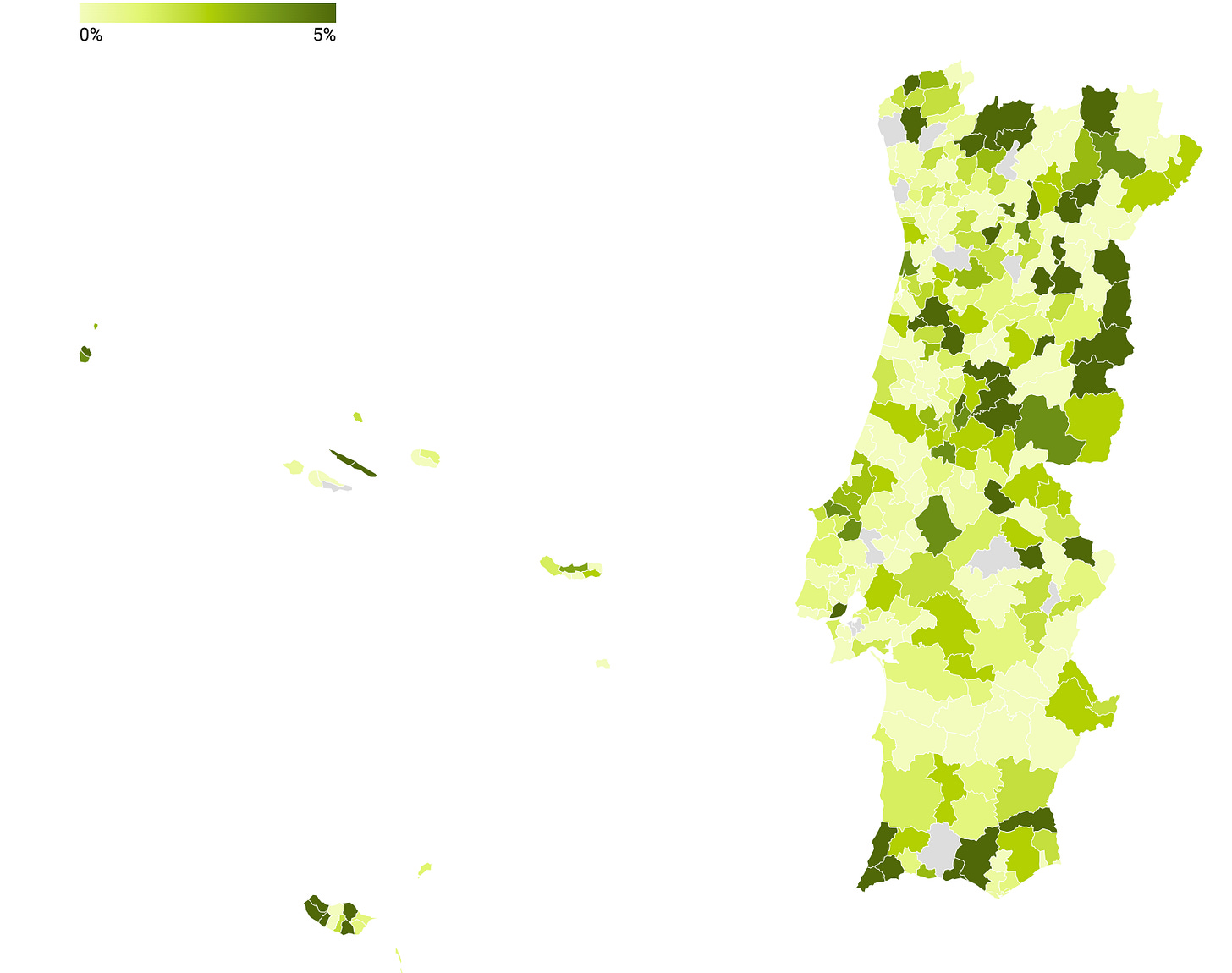Two-thirds of municipalities will hand back taxes in 2025
Of the 308 municipalities in Portugal, 200 will give up part or all of the 5% of the total personal income tax paid by taxpayers to the municipality.

What?
With municipal elections set to take place on September or October 2025, 200 municipalities across Portugal have decided to partially or fully return their IRS revenue to taxpayers, totaling approximately €558 million.
This figure, derived from government estimates in the 2025 State Budget and cross-referenced with data from the Tax and Customs Authority and local governments by Jornal de Negócios, represents a notable gesture.
Of these 200 municipalities, 43 have decided to fully refund the IRS revenue to their residents, foregoing the 5% share entirely (three more than in 2024). This includes cities such as Lisbon, Funchal, and Loulé.
On the other hand, 96 municipalities opted to keep the entirety of the IRS revenue, providing no discount to their residents. Examples include Bragança, Gondomar, Leiria, and Guimarães. However, this number is lower than last year, when 112 municipalities chose to do so.
Finally, 13 municipalities didn’t report their IRS participation rate to the Ministry of Finance by December 31 and will this be likely entitled to the full 5% share.
These municipalities include Arouca, Avis, Azambuja, Barreiro, Borba, Lajes do Pico, Moita, Ribeira de Pena, Silves, Viana do Castelo, Vila do Conde, Vila Nova de Paiva, and Vila Verde.

A detailed list can also be found here.
Examples of Full Returns and Reductions
Some notable examples include Lisbon, which will return the full 5%, amounting to an estimated €86 million. Other municipalities like Funchal, Loulé, Arganil, and Lagos have also committed to full returns.
In contrast, Porto has reduced its retained IRS share from 3.5% to 3%, while Sintra, which previously retained its full IRS allocation, will now return 1%. Amadora has reduced its retention rate from 3.8% to 3.5%.
99 municipalities have chosen not to return any portion of their IRS revenue, opting to allocate the funds elsewhere. Among these are Coimbra, Fundão, Leiria, Seixal, and Guimarães.
Additionally, 249 municipalities have made no changes to their IRS policies compared to 2024.
How Can I Claim This Right?
Since this is a municipal benefit, the discount is applied automatically by the Tax Authority (AT).
The only thing you need to do to take advantage of it (if applicable in your municipality) is to submit your IRS return within the legally established deadlines. The amount will then be automatically refunded to you in the form of a discount on your IRS.
Later, when you receive your IRS assessment notice, you can check the “Municipal Benefit” field to confirm whether the tax amount has indeed been refunded by your municipality.
Broader Context
The Government’s estimates indicate that the total IRS allocation to municipalities in 2025 is expected to reach €762 million, of which €558 million will be returned to taxpayers.
This widespread return of funds comes amidst increasing scrutiny of public spending and as municipalities position themselves ahead of the upcoming elections.
This trend reflects a growing emphasis on taxpayer relief, with many municipalities leveraging IRS returns to signal responsiveness to public concerns in an election year.




I'm sorry, but I'm unfamiliar with this concept. Are you saying that all the citizens in some municipalities pay municipal taxes and then might get a full refund on those taxes? Is this because the municipality doesn't need the revenue to pay for services and municipal workers? If so, why would the municipality levy the taxes in the first place? I'm confused.